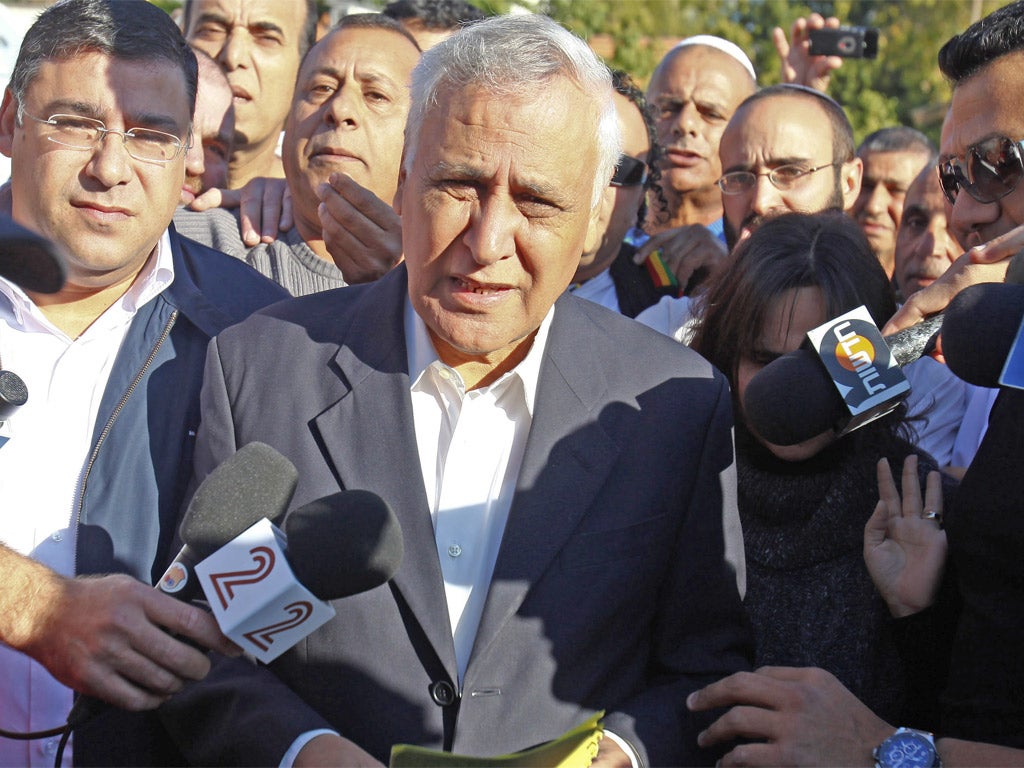Former Israeli president starts jail term for rape conviction

Your support helps us to tell the story
From reproductive rights to climate change to Big Tech, The Independent is on the ground when the story is developing. Whether it's investigating the financials of Elon Musk's pro-Trump PAC or producing our latest documentary, 'The A Word', which shines a light on the American women fighting for reproductive rights, we know how important it is to parse out the facts from the messaging.
At such a critical moment in US history, we need reporters on the ground. Your donation allows us to keep sending journalists to speak to both sides of the story.
The Independent is trusted by Americans across the entire political spectrum. And unlike many other quality news outlets, we choose not to lock Americans out of our reporting and analysis with paywalls. We believe quality journalism should be available to everyone, paid for by those who can afford it.
Your support makes all the difference.Israel's former president, Moshe Katsav, began a seven-year jail sentence for rape and sexual offences yesterday, insisting that he was an innocent man who was being "buried alive".
His detention marks the culmination of an unedifying public spectacle that has dragged on for five and a half years. His conviction last December was hailed by Israelis as a victory for the legal system, proof that no man is above the law, even as it cast an unflattering spotlight on the country’s political elite, brought low by a series of scandals in recent years.
Katsav, a 66-year-old immigrant from Iran, was convicted of twice raping a female employee while a Cabinet minister, and sexually harassing two other women during his tenure as head of state from 2000 to 2007. He lost his appeal against the conviction last month.
Before leaving for Maasiyahu prison in central Israel yesterday morning, a haggard Katsav proclaimed his innocence to reporters, saying that his conviction was based on a version of events, and not evidence. “The state of Israel is executing a man today on the basis of impressions, without real time testimony, without evidence,” the disgraced politician said. “One day, consciences will prick and you will see that you buried a man alive.”
Lacking forensic evidence, prosecutors built the case against Katsav relying almost entirely on the testimony of his victims. The women did not know each other, yet provided remarkably similar accounts of his behaviour, which legal experts believe may have convinced the judges of his guilt. Sentencing him, the judge said that Katsav was “manipulative,” and that his testimony was “riddled with lies.”
Few, though, expected the sentencing to be so severe, not least because of the intense media scrutiny and his years of public service. But it was precisely because he had abused a position of power that the judge said he was compelled to deny him leniency.
Katsav has never accepted any wrongdoing: “I’m about to pay the price for something I haven’t done,” he told the AP. “I’ve hugged and kissed women but not in an inappropriate way. We’ve become like Saudi Arabia. A hug is a sex offence.”
The former head of state has consistently insisted that he is the victim of a media witch-hunt, motivated, he claims, by racial discrimination and disdain for his working class background.
When the allegations against him became public in 2007, he came under enormous pressure to resign the presidency, forcing him to hand over to rival Shimon Peres. He initially accepted a plea bargain that spared him jail, to the fury of women’s rights groups, but later decided to prove his innocence in the courts.
A series of high-profile scandals have left many Israelis feeling deeply disillusioned with the country’s political elite in recent years. Ehud Olmert, a former prime minister, is on trial for corruption, while Foreign Minister Avigdor Lieberman is facing charges of fraud.
Join our commenting forum
Join thought-provoking conversations, follow other Independent readers and see their replies
Comments